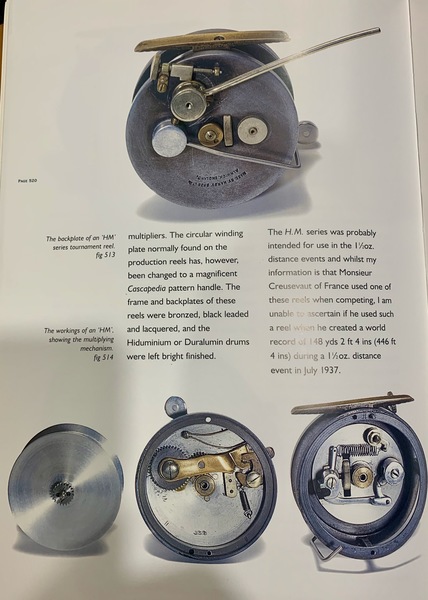Why any group would permit users of DC reels to compete with users of brakeless reels in accuracy contests is beyond me.
I hear you, but in my observation, the human touch and a low inertia spool beats any mechanical brake advantage except for the casual user. Low inertia aluminum and magnesium spools eventually proved to be the best at both accuracy and distance events, and brakes offered no advantage. Part of that might be that the casting weights used were typically 3/8 to 1/2 to 5/8. For very light weights or very heavy weights used in surf casting, brakes may be more useful.
I don't have an issue with competition with unlimited tackle for the same reasons that humans defeat computers in chess, because it takes a really, really good computer to defeat a human in chess, and it would take a really, really good reel to give a caster advantage enough to beat the best human accuracy casters. The world record holders in accuracy all use conventional reels without brakes. The gimmick reels just have not proved to be a great advantage over the human thumb in accuracy. In distance, the (brakeless) reels are king, even though there are no restrictions. The world champions are big strong men that can sling with the most force and still not break the leader and line. It is the amateurs which benefit the most from brakes.
In any case, allowing unlimited reels would advance the art, which in auto racing helps to improve regular drivers. Race on Sunday, Sell on Monday. But in fact as I have already mentioned, the use of specialized reels and rods in casting that could not be used in fishing probably contributed to the downfall of the casting clubs. Who knew that Shakespeare and Bronson and may other companies would sell speacilized casting reels that could not be used for catching any fish other than the smallest bluegill? So maybe I am arguing a moot point.
I have several examples of fixed spool tournament casting reels both in the lower weights (1/2 and 5/8) as well as the surf weights (1 oz to 4 oz). Outside of the surf casting events, the fixed spools cannot compete with the unlimited rotating spool reels for distance.
In summary, the french reel shown is a great example of an early tournament reel which would have been excellent in distance casting for the time, and also quite useful for accuracy casting. I would have no issue in competing against it with a Shakespeare narrow spool Standard of the time. Of course, I personally would probably lose, but someone would win with it.







